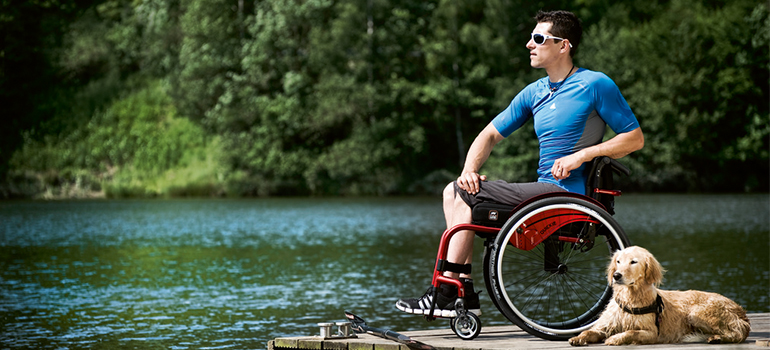Del:
Take it offline!
This Education in Motion resource is also available as a printable PDF.
Last ned PDF
Sport is becoming increasingly inclusive and continues to adapt to people’s diverse capabilities. Swimming, diving and sailing are just some of the water sports that allow people with disabilities to practice sports activities during the summer. These sports combine physical activity with leisure and well-being.
Benefits of water sports for disabilities
Water sports provide numerous benefits to people with disabilities, physical benefits, such as the improvement of circulation, the development of musculature and improved balance and coordination. Sport also improves physical conditioning; it helps to control weight and prevents the onset of diseases associated with a lack of mobility. The positive outcomes that people with disabilities achieve through practising sport can help their confidence, flexibility and make them feel more secure in their normal daily lives.
On a social level, sport promotes inclusion, which is fundamental for the development of social skills. This impacts personal self-improvement and self-esteem.
Are all sports positive in the same way? Do water activities provide any "extra" benefits?
Aquatic environments allow people with disabilities to move easier. As established by the Archimedes Principle, "a body submerged in liquid suffers an upward vertical thrust equal to the weight of the fluid it dislodges", which means that in water body weight can decrease by up to 90% which facilitates the performance of exercises.
Hydrotherapy, used at the physical and psychic level, consists of utilising water as a therapeutic agent in conjunction with other physical elements such as temperature, frictional force and hydrostatic pressure.
Generically, the benefits of water sports for people with disabilities are the same as for people without disabilities, the most important benefits are:
- All of the muscle groups are used.
- It increases cardiorespiratory capacity.
- The resistance provided by the water helps to burn calories.
- Different elements are required for the same exercise, such as resistance, strength and flexibility.
- They can help to reposition the spine and achieve a more upright position.
- The coolness of the water and the feeling of floating can reduce the sensation of effort.
- Joint pressure is lowered.

Water sports and disability: plans for everyone
Many sports are practised in the water, and almost all of them can be adapted. Such as the following:
Swimming for competition, leisure or therapeutic reasons is one of the most popular adapted sports. More accessible pools are becoming available and its popularity continues to increase, especially during summer holidays.
Swimming for people with disabilities requires hardly any adaption in comparison to its non-adapted counterpart and is one of the veteran Paralympic sports (after its inclusion to the programme at the first Paralympic Games held in Rome in 1960).
The UK is considered one of the best in this discipline thanks to figures like Bethany Firth, a multiple world record holder and multiple Paralympic Champion: Who became the most decorated Paralympics GB athlete at Rio 2016. Firth won an impressive four European titles at Dublin 2018 including gold in the newly introduced S14 Mixed 4x100m Freestyle relay that saw the GBR quartet set a new World record.